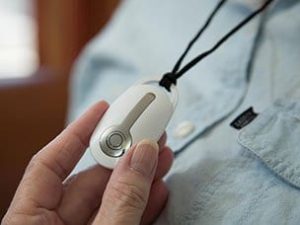Home safety for seniors – Check out the home safety tips and important fire safety measures for the elderly, especially those who are car drivers. With increasing life expectancy, breakage of joint family system, and higher living standards, the safety of senior citizens is of primary concern.
Home safety for seniors – Best precautions and tips !
Most accidents involving the aged are found to occur during the morning hours. This may be due to the following reasons:
- Arthritis or other physical problems which decrease or slow down the movement of various muscles and joints.
- Lapses in memory which may contribute to inattention to important things like food on the stove and inability to notice wet floors. This increases the probability of slipping over a wet surface.
- General decline in strength which makes it difficult to lift loads including grocery bags.
- General decline in vision may result in inability to see danger in many situations, especially when the light is low or the contrast in the scenery is not sharp. Adjustment from light to darkness or vice versa also takes longer. The angle of vision too decreases thus the field of vision is reduced.
- Hearing sensitivity also decreases with age.
Hence, in a household with elderly members, a number of precautions need to be taken. Many of these can be taken care of – at the time of construction of the house. Besides, seniors can also take the help of latest medical alert systems and devices and be aware of basic first aid options.
Important fire safety tips for seniors
Fire alarms should be installed in rooms and hallways and tested periodically. Grip bars should be installed in the bathrooms and bathtubs to prevent falls. Fire and smoke detectors help to prevent major fires at home. Hand rests or banisters should be used on all the stairs.
Bright lights must used in rooms including bathrooms. There should be a lamp or light switch and a telephone within the reach of the bed for use at night.
The base of a walking stick, if used, should be at least as wide as the top. If the stick is used at an angle, the narrow base results in slippage, especially while rising from a chair or a bed.
The elderly should be extra careful about smoking in bed, using a step stool, using sharp implements or power tools, having too much furniture crowding the house, lifting heavy loads, etc. They should be especially careful in the kitchen, the bathroom, roadside and while driving.
Home safety for seniors who are car drivers
As the average age and the living standards increase, there is an increasing number of old age drivers beyond the age of retirement. With age, reflexes become slow, muscular strength is reduced and some joints may become arthritic. Vision changes occur as well.
Peripheral vision decreases, glaucoma and cataracts cloud vision, lens hardening makes close focusing difficult; pupil size decreases cutting down the amount of light reaching the retina thus affecting vision. This happens specially at night. Also the ability to adjust from light to darkness decreases as well.
These vision problems affect judgement regarding distances, cars pulling out of driveways, quick interpretation of the road signs, turning signals, etc. The ability to distinguish objects with slight differences in shades decreases, so they may not see in time a pedestrian wearing dark clothes crossing the road at night.
While it is true that the total number and severity of accidents in which older drivers are involved is less than those is which young drivers are involved, the number of accidents per kilometer driven by older drivers is quite significant.
Of course, they are law-abiding courteous, non-competitive, and cautious drivers. When seniors are involved in an accident, they receive more injuries and their recovery is slower because of their fragile bones and advanced age.
Some older drivers find busy intersections difficult to cross and may make wrong turns. Some are on medication and hence, should consult their doctor about the advisability of driving.
More safety precautions and measures for seniors
Do not let driving a car, become an issue of personal pride. Your safety and that of others may be at stake. Road skills and safety depend less on your age than on your overall health. Seniors should avoid heavily tinted glass windows since they require more light to see clearly than do the young.
Diabetes can cause fluctuating vision, dizziness, and even unconsciousness, if care is not taken. Strokes, epilepsy, Alzheimer’s and Parkinson’s diseases cause dizziness and tremors, and impair memory and concentration.
If an older driver suffers from any of these ailments, heart disease and deteriorating vision and hearing, it is essential that a doctor be consulted regarding the advisability of driving.
In order to reduce the number of accidents, older drivers may be required to take driving tests at periodic intervals to assess their driving capability. They may be restricted to day-time driving, if need be.
Road signs should use larger letters, shiny material and contrasting colours. The signs should be well-maintained, clear, and not broken.
RELATED TOPICS
Personal trainer certification
Personal injury lawyers in Austin
Online medical assistant schools


